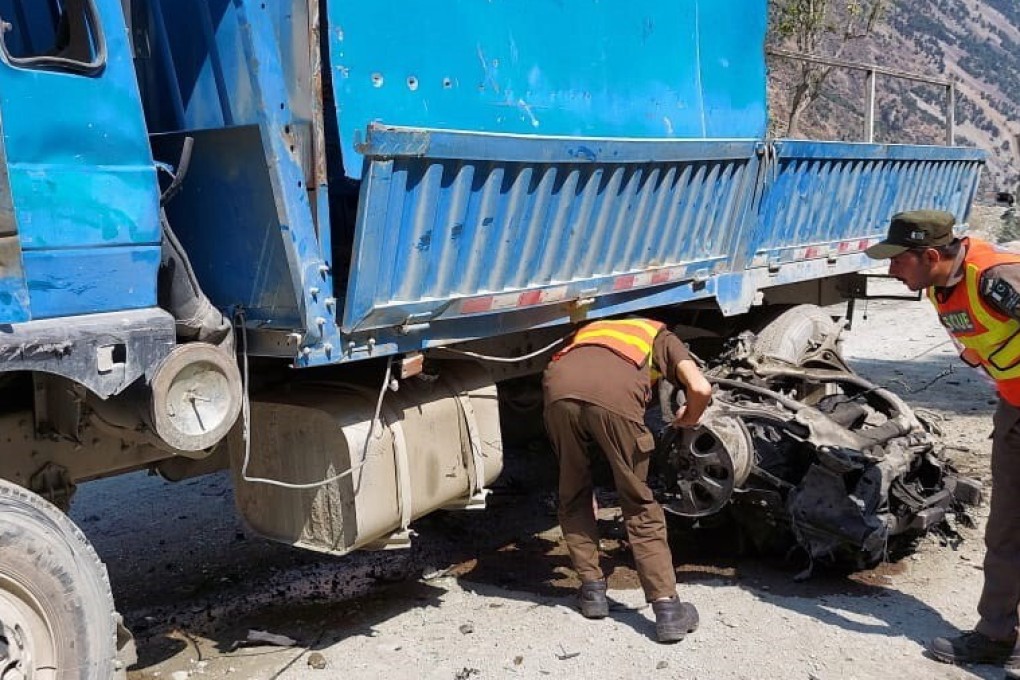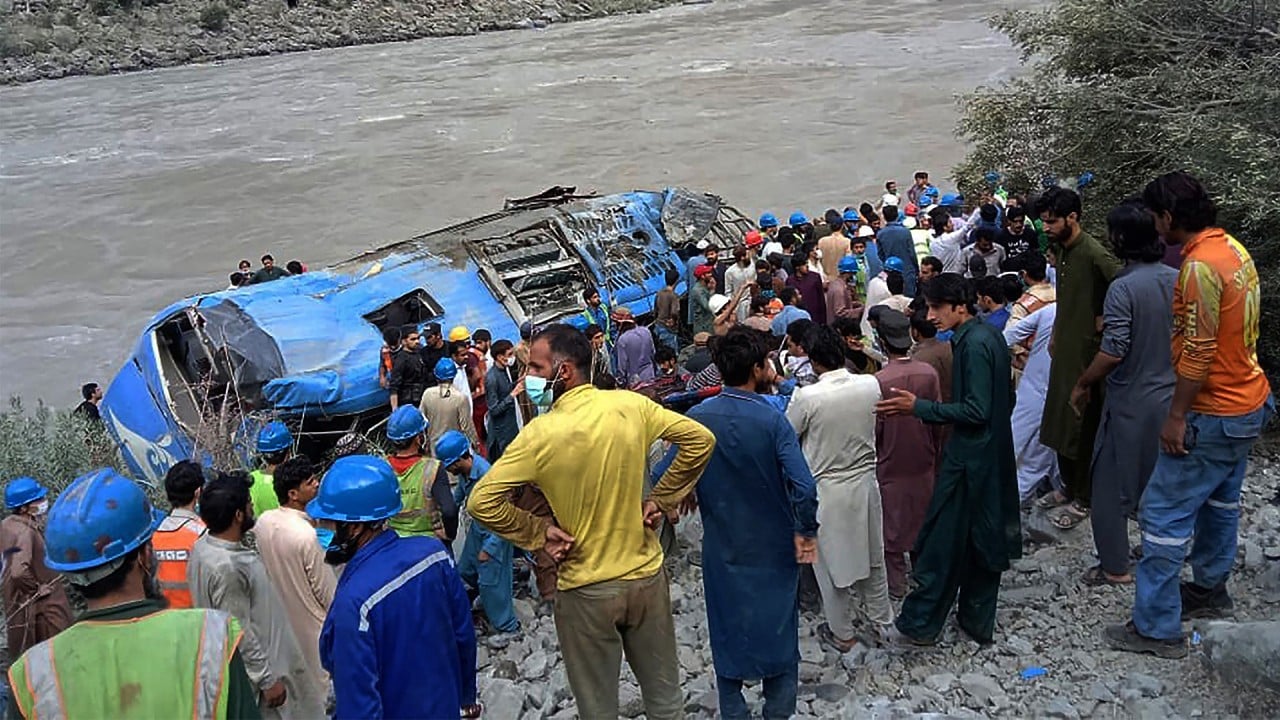Explainer | Pakistan bus blast: why is anti-China terrorism suspected, who is behind it and what do they want?
- China’s closeness to Pakistan make its projects a target for Baloch separatists, while its treatment of Uygurs has angered Tehreek-e-Taliban Pakistan (TTP)
- Baloch militants have already attacked a Chinese consulate, and the US’ exit from Afghanistan leaves China as the new ‘big villain’ in the TTP’s eyes

Pakistan’s Foreign Minister Shah Mahmood Qureshi has said that an initial probe into a bus explosion that killed 13 people, including nine Chinese workers, in its northern region on Wednesday suggested the incident was an accident.
China has expressed shock and asked for a full investigation, with Foreign Minister Wang Yi saying that if it was a terrorist attack, the perpetrators should be arrested immediately. Security measures for China-Pakistan cooperation projects should also be strengthened, he said.
“There is no shortage of violent actors that oppose Chinese projects and the overall Chinese footprint in Pakistan. Separatist insurgents and Islamist terrorists both view China as being in league with a Pakistani state that they despise,” said Michael Kugelman, senior South Asia associate at the Wilson Centre, a Washington-based think tank.

01:51
Nine Chinese nationals among 13 killed in Pakistan bus blast